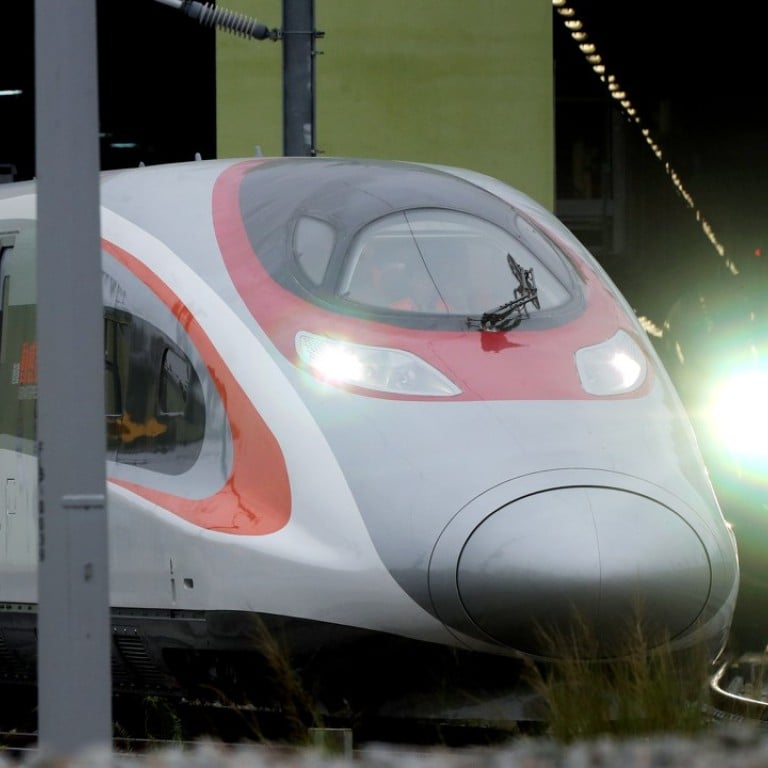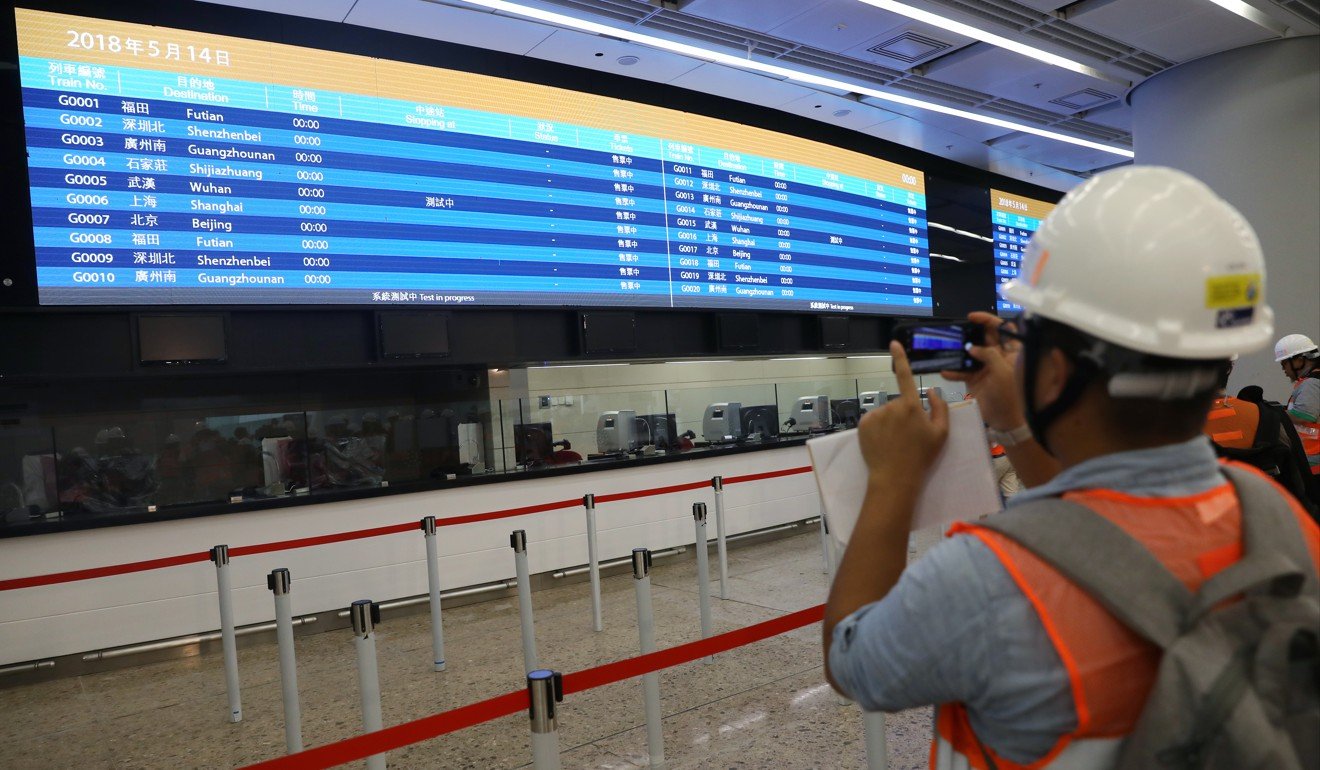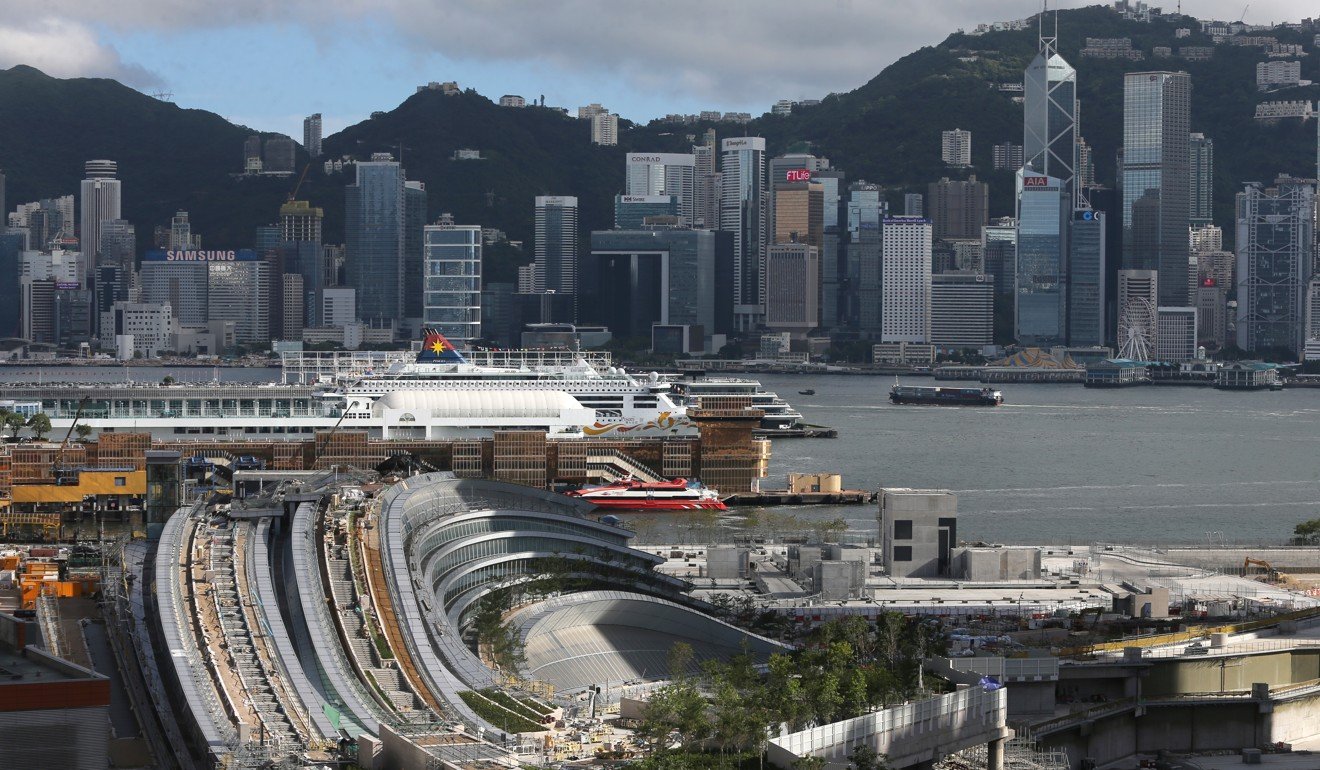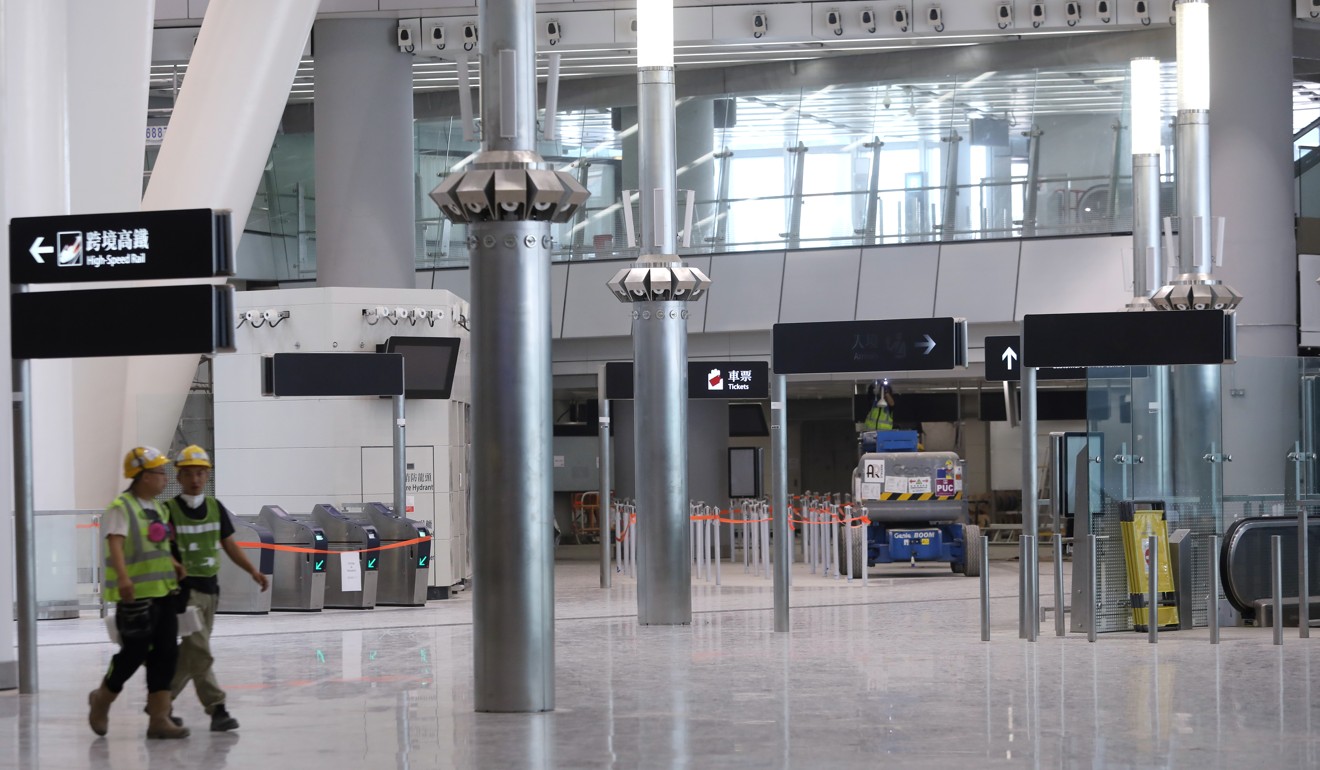
Everything you need to know about Hong Kong’s joint rail checkpoint arrangement
Controversial plan will see mainland laws enforced on Hong Kong soil in the city’s high-speed rail terminus
It means that when the much-delayed 26km Hong Kong section of the Guangzhou-Shenzhen-Hong Kong express rail link starts operation in September this year, the travelling time from the city’s centre to Guangdong’s provincial capital will be reduced from more than two hours to about 50 minutes. The Hong Kong section cost HK$84.4 billion to build.
Despite the approval, opposition legislators argue that a series of issues surrounding the so called “co-location” arrangement, ranging from its constitutionality to security details, remain unresolved.
Here is what you need to know.
1. What does the law empower authorities to do?
The co-location law will grant Beijing and its authorities almost full jurisdiction in a designated port area “deemed as the mainland”.
The area is to take up one-quarter of the terminus, or three levels including the arrival and departure halls, as well as station platforms. Compartments of the trains will also be subject to the jurisdiction and laws of mainland China.

Offices from five mainland law enforcement units – immigration, customs, quarantine, border control and security – will be set up in the designated area.
But the tracks will stay within local purview to facilitate maintenance,as Hong Kong authorities will also exercise jurisdiction relating to the regulation and monitoring of railway safety.
2. Is the co-location arrangement constitutional?
Li Fei, then head of NPCSC’s Basic Law Committee, said the decision carried constitutional authority that “cannot be challenged”.

But the government did not state clearly whether the decision had a binding effect on Hong Kong.
3. Is the mainland port area considered mainland soil? Can foreigners entering the area still call their consulates in Hong Kong to request help?
Upon entering the port area, mainland laws including immigration and criminal laws shall apply. Also, the rail link by-laws will be in place to prevent minor offences such as smoking on trains or unauthorised entry.

Since passing through the area will be no different to entering mainland territory, Solicitor General Wesley Wong Wai-chung confirmed to lawmakers that foreign passport holders “in principle” should seek help from consuls general on the mainland instead of those in Hong Kong. He refused to elaborate and said diplomatic negotiations would best be left to the Chinese foreign ministry as well as embassies in China.
4. Exactly what kind of officers from the mainland will be stationed in the port area? Will they be allowed to arrest Hong Kong protesters, or enter the city’s soil? What happens if an emergency or a fire breaks out in the port area?
Mainland officers from immigration, customs, health inspection, and railway police will be stationed in the designated area and apply mainland laws. Some officers are expected to carry firearms.
When asked by lawmakers whether Hongkongers staging protests would be arrested, officials reminded passengers to obey mainland laws, and stressed the officers would have no law enforcement powers outside their zone.
It remains unclear whether mainland officers are allowed to leave the area for work purposes or outside their shifts. But the government did confirm Hong Kong officers must pass through immigration clearance if they go to the port area.
In the event of an emergency, such as a fire or an urgent medical situation, mainland authorities may request help from Hong Kong police or the fire service under the principle to prioritise rescue work. When needed, passengers could be escorted from the port area to the Hong Kong side first and complete immigration clearance after the emergency is resolved.
5. Can travellers still access Facebook and Hong Kong telecommunications in the mainland area?
Hong Kong’s transport and housing chief Frank Chan Fan said in April websites or apps that passengers can use in the mainland port area, or in trains within Hong Kong’s territory, would be no different from others in the city.
However, in a set of questions and answers on co-location, available on the Transport and Housing Bureau website, one question touched on whether a Hong Kong resident would be held legally liable for using Facebook on the train.
The authorities only explained that criminal offences committed on the train, even when it was operating in Hong Kong, would be handled under mainland law.


